Do you need to capture anything on your screen? Use the Snipping Tool in Windows 11. Here's how.
Windows had the ability to take screenshots for a long time with the Snipping Tool, but Windows 11 replaces the classic Snipping Tool and Snip & Sketch apps with a new version that combines the best features from these apps with an updated interface.
The new app lets you take various types of screenshots, select a rectangle or use the free mode, or quickly capture a window or the entire screen. The second part of the experience is the new editor that lets you crop, annotate, and save or share the screenshot.
In this Windows 11 guide, we will walk you through the steps to take screenshots using the Snipping Tool app.
How to start using Snipping Tool
The Snipping Tool is a straightforward app. You can take screenshots on Windows 11 through the app or shortcut. In addition, the app includes various settings you can configure, including the ability to use the Print screen button instead of the Windows key + Shift + S shortcut.
Screen capture via app
To take screenshots through the Snipping Tool app, use these steps:
- Open Start.
- Search for Snipping Tool and click the top result to open the app.
-
Select one of the available screen capture modes, including:
-
(Optional) Use the Delay option to delay the capture for up to 10 seconds.
Quick note: This option can come in handy when trying to capture a particular action.
-
Click the New button.
- Create the screenshot with the mode you selected.
Once you complete the steps, the screenshot will open in the Snipping Tool editor, where you can save the capture or annotate before sharing it.
Screen capture via shortcut
Alternatively, you can also use a keyboard shortcut to quickly bring up the tools to take a screenshot on Windows 11. Here's how:
- Use the Windows key + Shift + S keyboard shortcut.
-
Select one of the screen capture modes:
- Rectangle mode.
- Window mode
- Full-screen mode
- Free-form mode.
- Create the screenshot with the option you selected.
After you complete the steps, the capture will open with the Snipping Tool editor.
Editing screenshot
To edit and save the screenshot, use these steps:
- Click the Image Crop tool in the command bar.
- Use the edges to crop and resize the screenshot.
-
Click the Check button to apply the changes.
-
Use the Ballpoint pen, Highlighter, or Touch Writing features to annotate the image.
Quick tip: The Ballpoint pen and Highlighter have different options to change the color and stroke size to annotate the image.
-
(Optional) Use the Ruler to draw straight lines.
- Use the Eraser to delete strokes.
- (Optional) Click the Copy button from the top right to copy the image to the clipboard and paste it on a document.
-
Click the Save button from the top right to save the screenshot as an image file (.jpg, .png, or .gif).
- Click the Share button from the top right to share the capture with other people using different apps.
Once you complete the steps, the screenshot will save on the computer.
Adjust settings
In this new version of Snipping Tool, you can configure various settings.
To change the app settings, use these steps:
- Open Start.
- Search for Snipping Tool and click the top result to open the app.
-
Click the See more (three-dotted) menu and select the Settings option.
-
In the Settings page, enable or disable the options as needed:
- Auto copy to clipboard — Copies the capture in the clipboard for easy pasting onto documents.
- Save snips — Asks to save the capture as you close the editor.
- Multiple windows — Launches a new instance of the app for each capture.
- Snip outline — Inserts borders to each snip automatically.
- Under the "Appearance" section, select the App theme setting.
-
Select the color theme. Options available:
-
Under the "Shortcuts" section, click the Change in settings option for the Print Screen shortcut setting.
- Click the Yes button.
-
Turn on the Use the Print screen button to open screen snipping toggle switch to use the Print screen button instead of the Windows key + Shift + S shortcut to open the tool.
After you complete the steps, the settings will apply automatically.
More Windows resources
For more helpful articles, coverage, and answers to common questions about Windows 10 and Windows 11, visit the following resources:

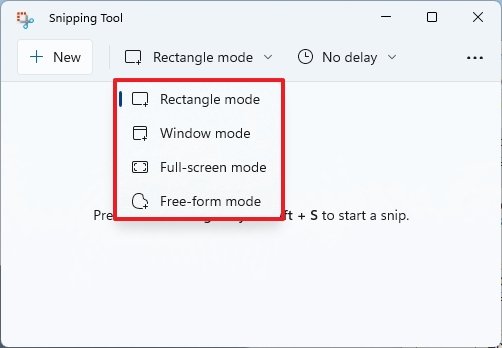

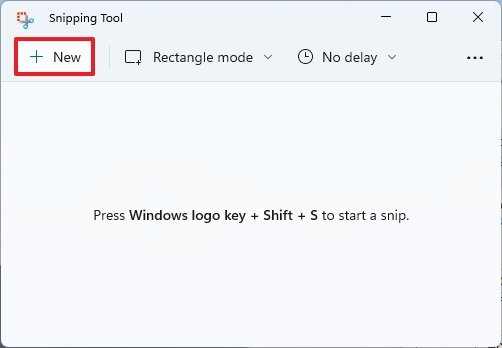
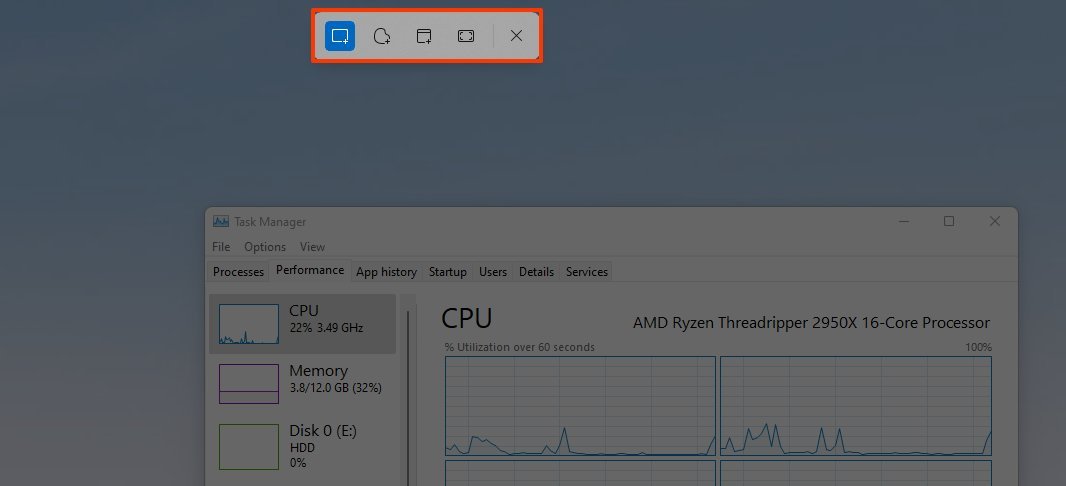
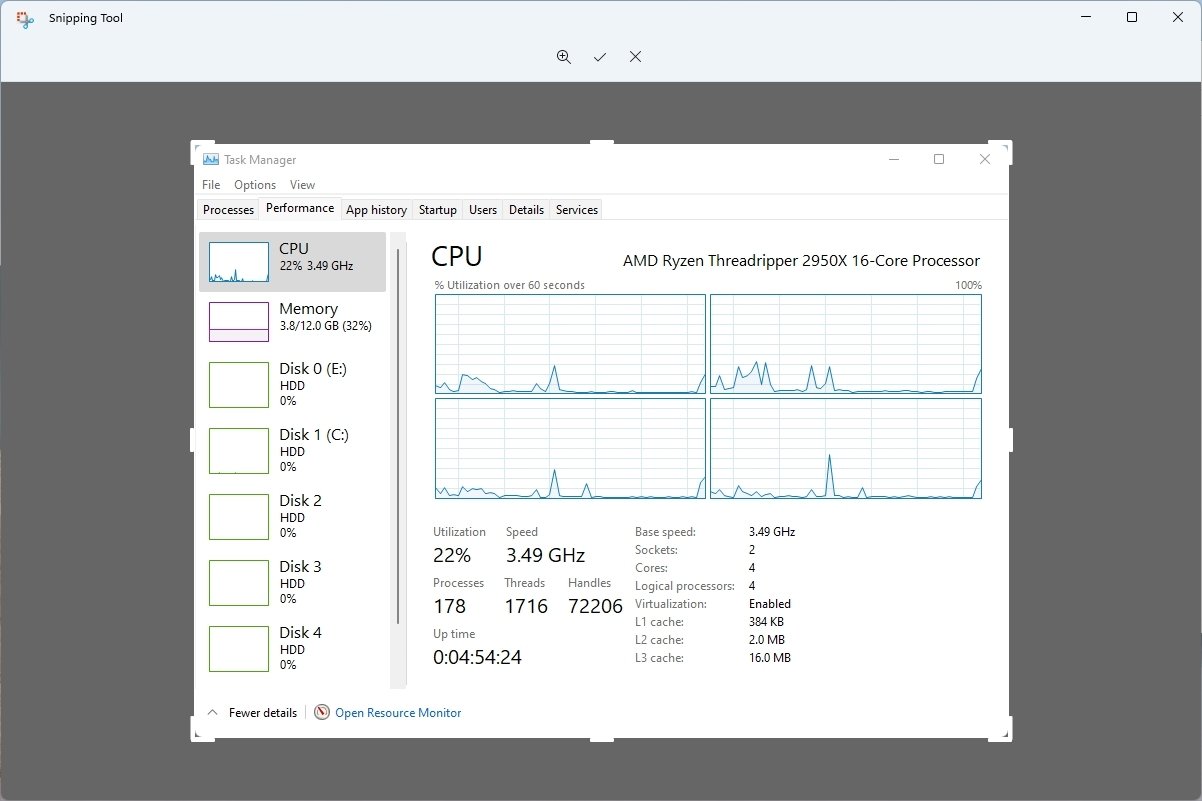
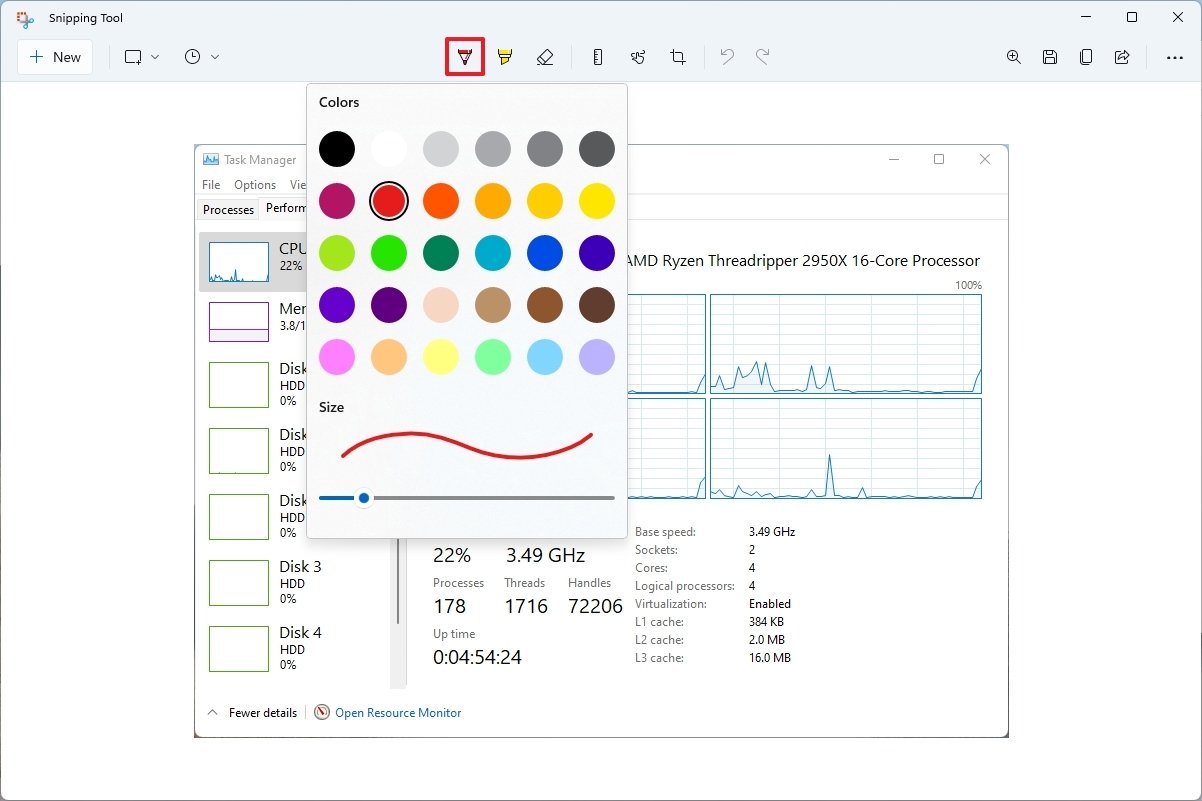
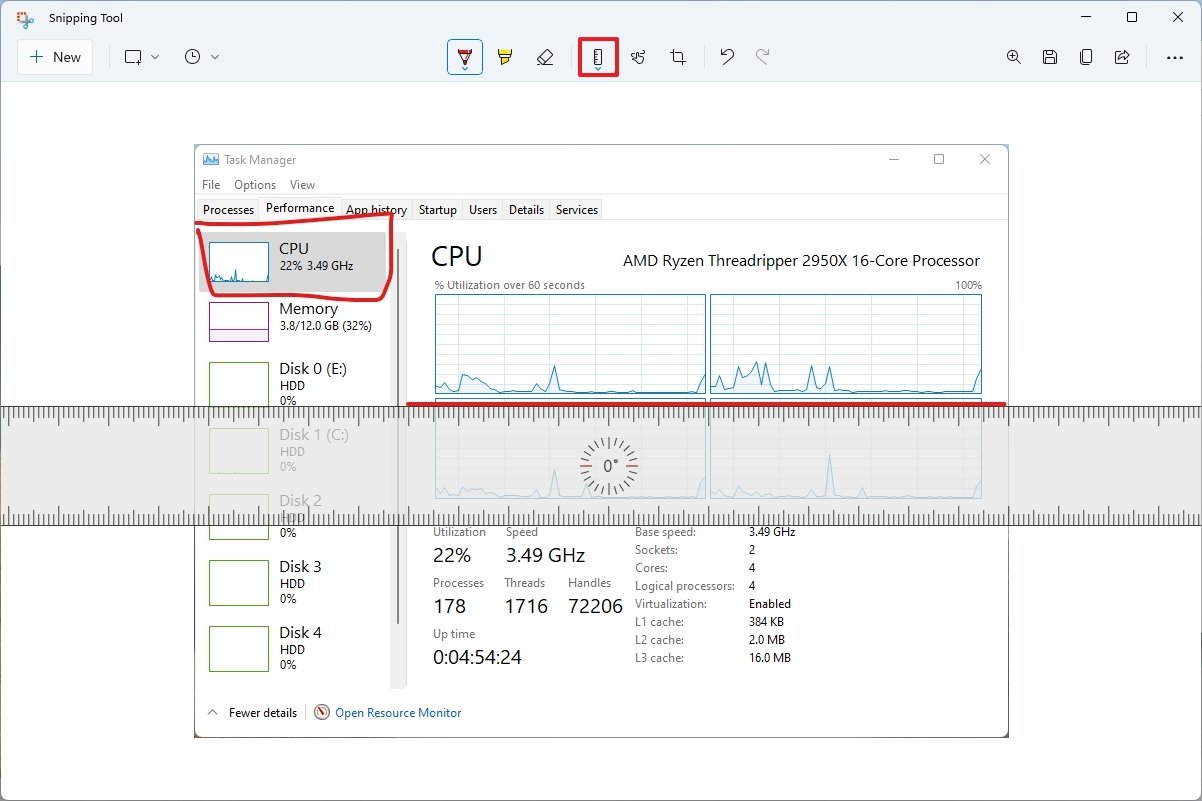
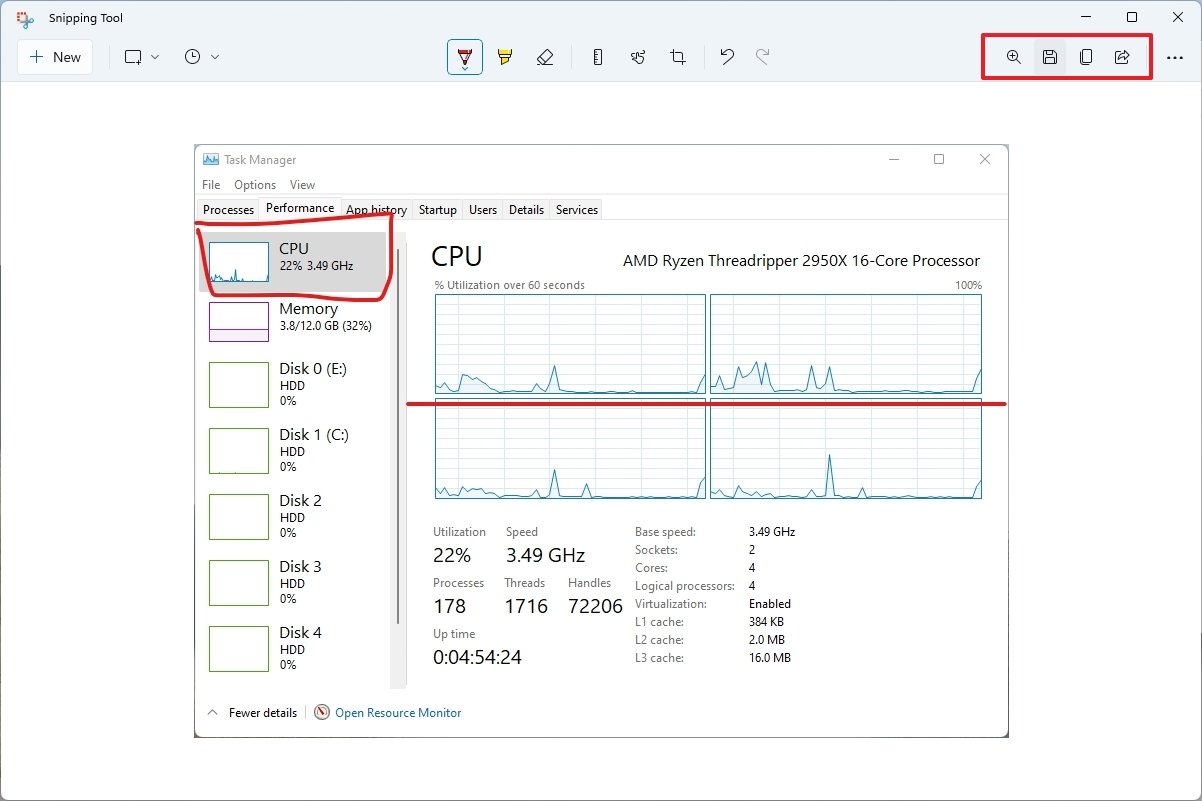
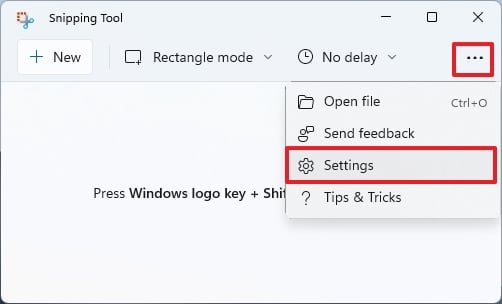
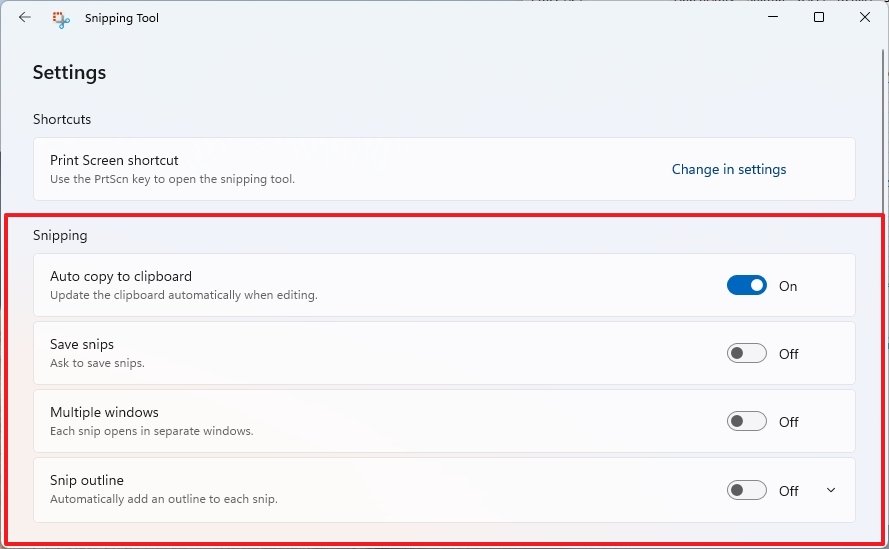
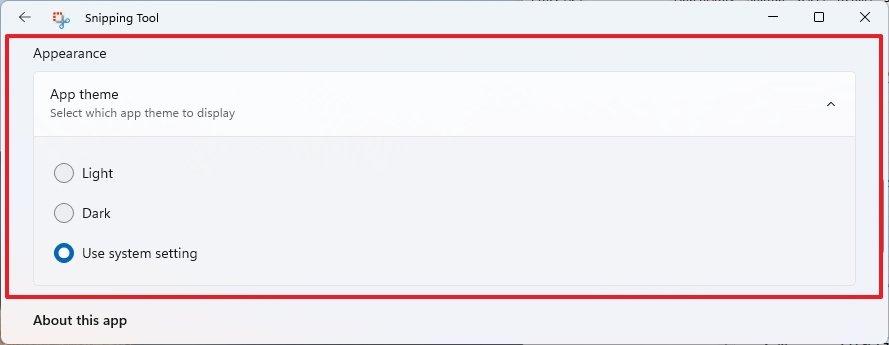
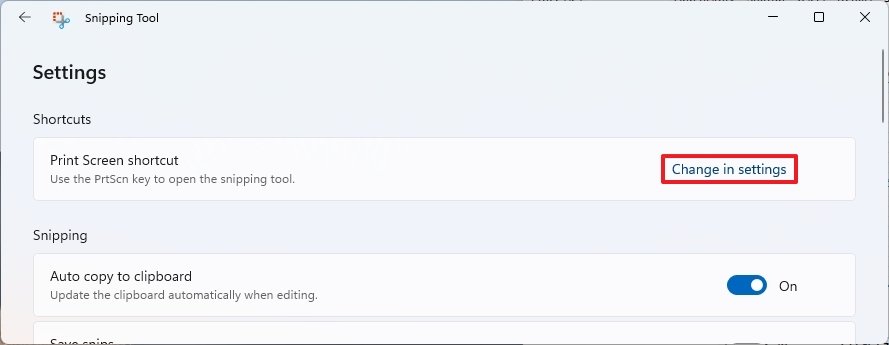
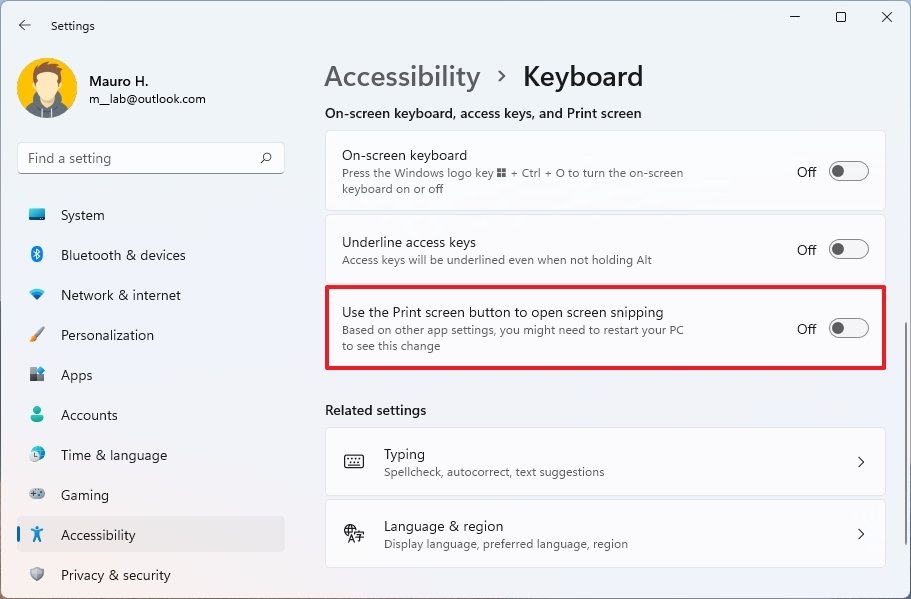


0 Commentaires